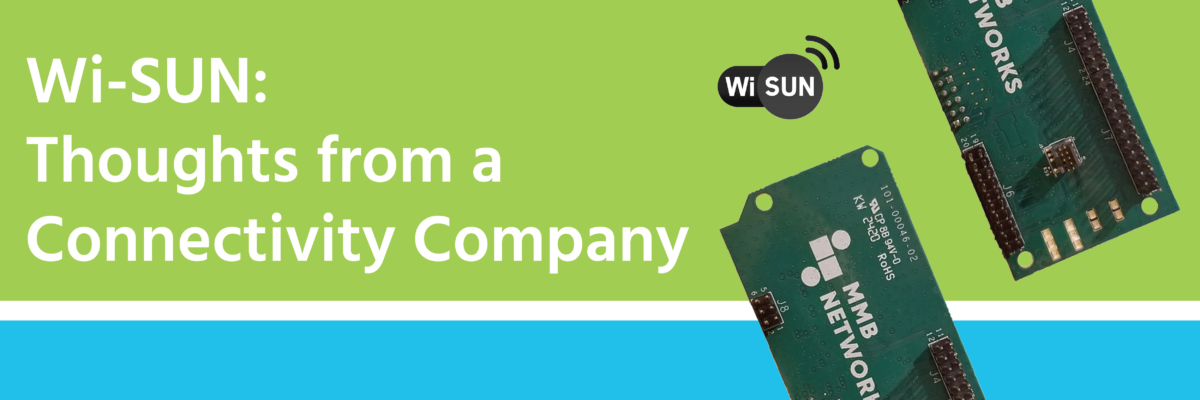What is Wi-SUN?
Pretty much everyone has heard of and uses “Wi-Fi”, but Wi-SUN, not so much. So to start, it stands for Wireless Smart Ubiquitous Network, and it’s an IPv6 sub-GHz mesh that is used for Smart City and Smart Utility Applications. The technology is managed by the Wi-SUN Alliance, a global organization with over 300 members who have shipped more than 100 Million products. It’s ideally positioned to support product types like Smart meters, Smart Street Lighting, City sensing, and a whole host of other applications.
Cities have been undergoing a significant digitization for many years, and this pace has accelerated due to the pandemic. Wi-SUN offers the ability to monitor and control significant assets from a distance which saves tremendous human effort. With increased access to real-time data, utilities and municipalities can make better decisions. Using Wi-SUN ensures that every deployment can leverage all the benefits of mesh networking, plus with its IPv6 routing, you can address every device on the network directly without any translation.
Is Wi-SUN the preferred solution for Smart Cities?
At MMB Networks, we’ve been involved in the Smart Energy market since 2007, and have developed numerous solutions for multiple mesh technologies like Zigbee, Thread, and Matter. We also work with many Star network topologies like Wi-Fi and BLE. While working with many customers over the years, they continue to reinforce the fact that it’s critical to choose the right technology for the right application. And for us, it’s critical that we support Wi-SUN as the leading solution for Smart Cities.

Our technological expertise across numerous protocols ensures that whether it’s a Smart City application, a Smart Building application, or some other application — you’ll get the right protocol. It also means that we won’t propose a technology that’s not right for your product, market and application. So, as the IoT market continues to grow, you can be sure that we’ll grow with it and support all technologies necessary so that products are developed that not only have wireless connectivity, but that they have the right wireless protocol to support the intended use case.
Learn More

